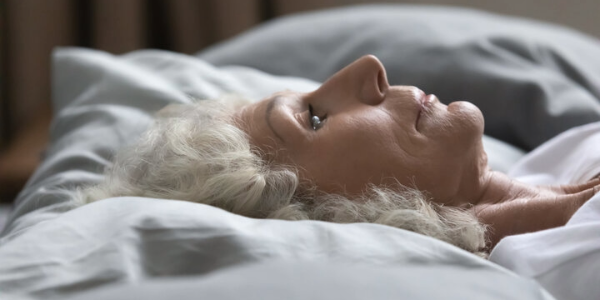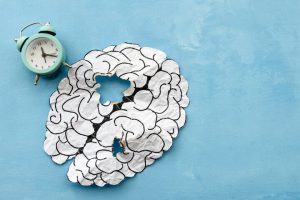People in their early middle age who have poor sleep quality, including difficulty falling or staying asleep, show more signs of poor brain health in their late middle age, according to a study published in the online edition of Neurology®, the medical journal of the American Academy of Neurology. The study does not prove that poor sleep causes accelerated brain aging. It only shows an association between poor sleep quality and signs of brain aging.
Address Sleep Problems Earlier in Life
“Sleep problems have been linked in earlier studies to poorer thinking and memory performance later in life, putting people at greater risk of dementia,” said study author Clémence Cavaillès, PhD, of the University of California San Francisco. “Our study, which used brain scans to determine the brain age of the participants, suggests that poor sleep is associated with brain aging that is almost three years faster, even in middle age.”
The study included 589 people who had an average age of 40 at the start of the study. Participants completed questionnaires on sleep at the beginning of the study and five years later. Fifteen years after the start of the study, the participants underwent brain scans. The researchers analyzed the participants’ responses to questions such as “Do you usually have trouble falling asleep?”, “Do you usually wake up several times during the night?” and “Do you usually wake up much too early?” They recorded the number of six poor sleep characteristics for each participant: short sleep duration, poor sleep quality, difficulty falling asleep, difficulty staying asleep, waking up early in the morning, and daytime sleepiness.
The participants were divided into three groups. The people in the low group had no more than one poor sleep characteristic. Those in the middle group had two to three characteristics, and those in the high group had more than three characteristics. At the start of the study, about 70% were in the low group, 22% were in the middle group, and 8% were in the high group. The researchers examined the participants’ brain scans, in which the degree of brain shrinkage corresponds to a specific age. The researchers used machine learning to determine the brain age for each participant. After adjusting for factors such as age, gender, high blood pressure and diabetes, the researchers found that the average brain age of the people in the middle group was 1.6 years older than that of the people in the low group, while the average brain age of the people in the high group was 2.6 years older. Of the sleep characteristics, poor sleep quality, difficulty falling and staying asleep, and waking early were associated with greater brain age, especially when these poor sleep characteristics occurred over a five-year period.
“Our results underscore the importance of addressing sleep issues earlier in life to maintain brain health. These include maintaining a regular sleep schedule, exercising, avoiding caffeine and alcohol before bed, and practicing relaxation techniques,” said study author Kristine Yaffe, MD, of the University of California San Francisco and a member of the American Academy of Neurology. Future research should focus on finding new ways to improve sleep quality and to examine the long-term effects of sleep on brain health in younger people. One limitation of the study was that participants self-reported their own sleep problems and it is possible that they did not report them accurately.






